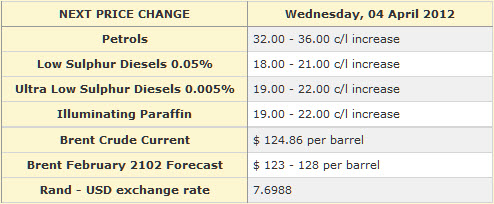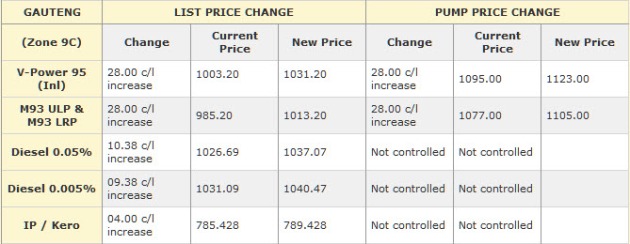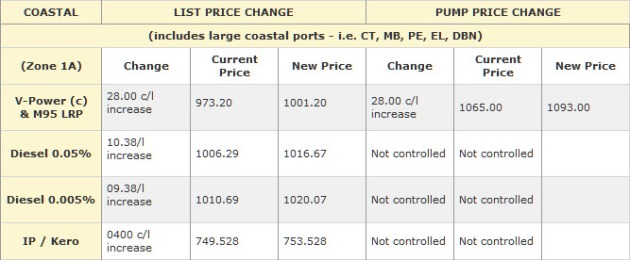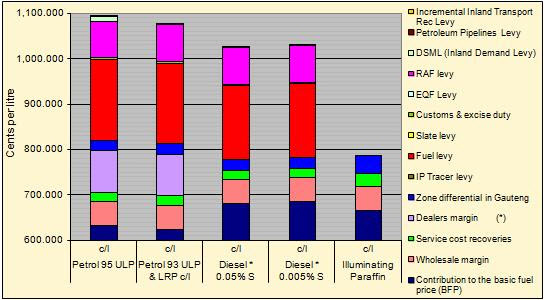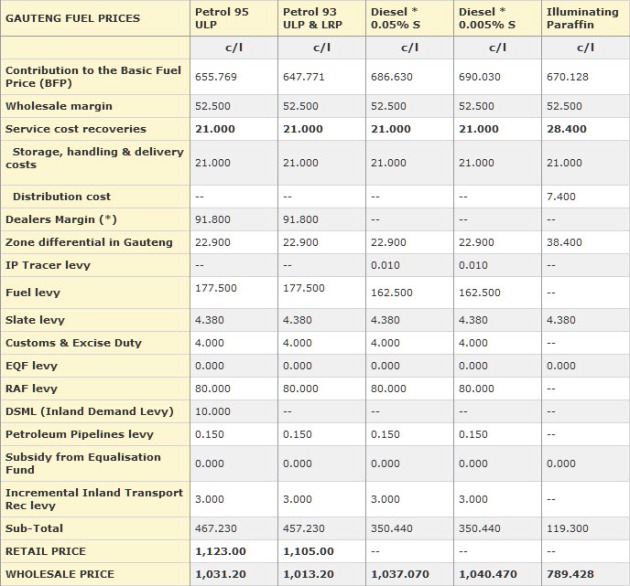Foreign investors are selling South African equities at the fastest pace in four years, even as they buy stocks in the biggest emerging markets, on concern policy makers will seek a larger share of the nation’s mining profits.
International investors sold 7.9 billion rand ($933 million) of South African equities in the first two months of this year, on track for the biggest first-quarter outflow since 2008. Developing-country equity mutual funds lured $20.6 billion in the same period, the best start to a year since 2006, said Cambridge, Massachusetts-based research firm EPFR Global.
A study commissioned by President Jacob Zuma’s ruling African National Congress party proposed increasing taxes on the mining industry last month, while the party’s youth wing has lobbied for a government takeover of gold and platinum mines to boost employment in Africa’s biggest economy. Raw-materials producers posted the biggest declines among 10 industries in the MSCI South Africa Index (MXZA) this year as AngloGold Ashanti Ltd. (ANG) and Impala Platinum Holdings Ltd. (IMP) retreated.
“We are not getting our share” of foreign investment, said Ian Cruickshanks, the Johannesburg-based head of treasury strategic research at Nedbank Group Ltd., South Africa’s fourth- largest bank. “The threat of nationalization has a heck of a lot to do with that.”
The MSCI South Africa Index has climbed 4.9 percent this year as of March 8, compared with a 15 percent gain in the MSCI Emerging Markets Index. (MXEF)
BRICS Laggard
Slower economic growth than in Brazil, Russia, India and China also is reducing investor demand for South African equities, Michael Power, a global strategist at Investec Asset Management in Cape Town, said in a Feb. 23 phone interview.
South Africa’s economy will probably expand 2.7 percent this year, the Finance Ministry said last week, less than the 3.4 percent estimated in October. China, the biggest emerging economy, set a long-term growth target of 7.5 percent on March 5. India may expand 7 percent this year, compared with 3.3 percent in Russia and 3 percent in Brazil, according to the Washington-based International Monetary Fund.
“Investors are seeing growth opportunities elsewhere in the world, in high-beta markets, and are using South Africa to fund that,” Power said.
Impala Platinum, the world’s biggest producer of the metal, has retreated 6.2 percent in Johannesburg trading this year. The Illovo-based company has 85 percent of its assets in South Africa and the remainder in neighboring Zimbabwe. AngloGold Ashanti has lost 12 percent. The world’s third-largest gold producer has 22 percent of its assets in South Africa.
Relative Value
This year’s 3.3 percent drop in the MSCI South Africa mining index has left it valued at 2.2 times net assets, compared with 1.8 times for MSCI’s gauge of global mining companies, according to data compiled by Bloomberg. The South Africa measure’s 21 percent premium over the global index is the smallest since July, the data show.
Mine ownership will be discussed at a party policy conference in June, Enoch Godongwana, the head of the ANC’s economic policy committee, told reporters in Johannesburg on March 5. South Africa is the world’s biggest producer of platinum, chrome and manganese and commodities account for 64 percent of exports from the $388 billion economy.
The ANC study proposed the introduction of a “resources rent tax” on all mining operations once they earn returns greater than about 15 percent annually and advised the government to consider working with labor unions to exert greater control over key mining companies. At the same time, it said nationalization of mines would lead to “economic disaster” and cause foreign investors to flee.
Youth Wing
Seizing mines wouldn’t be a “smart strategy” for South Africa and changes to taxes or ownership will only be made after extensive consultation with the industry, Trevor Manuel, the country’s planning minister, told the Mining Indaba conference in Cape Town on Feb. 6.
The ANC youth wing, which helped Zuma defeat former President Thabo Mbeki for the leadership of the party, will keep pushing for nationalization, Ronald Lamola, deputy president of the group, told reporters in Johannesburg on March 5.
The youth wing says government control of mining companies will create jobs in a country where 53 percent of blacks between the ages of 15 and 24 are unemployed, compared with a jobless rate of 14 percent for white South Africans in the same age group, according to figures compiled by Johannesburg-based recruitment company Adcorp Holdings Ltd.
Zimbabwe Intervention
“It is clearly important this year to resolve once and for all, in the right way, the lingering uncertainty created by the nationalization debate,” Godfrey Gomwe, executive director for the South African unit of Anglo American Plc (AAL), a London-based mining company, said in a Feb. 7 speech in Cape Town. “Nationalization does not work.”
Zambia’s government took over copper mines owned by Anglo American in the early 1970s. Production plunged over the next three decades because of underinvestment and most of the assets were sold back to the company in 2000 for $90 million.
Government intervention this year in Zimbabwe, on the northern border of South Africa, has helped drag down Impala Platinum’s shares. The nation proposed higher taxes and is forcing Impala Platinum to sell 51 percent of its Zimplats unit to black Zimbabweans under new laws covering foreign-owned companies.
“What’s happening in Zimbabwe is adding fuel to the fire,” said Nedbank Group’ Cruickshanks.
Rand Weakness
Foreign purchases of South African assets are needed to help fund the country’s current-account deficit, which is expected to swell to 4.3 percent of gross domestic product this year, according to estimates released by the National Treasury on Feb. 22. Foreign investors have bought a net 11 billion rand of bonds in the first two months, offsetting equity outflows, according to the JSE.
“Poor equity flows are a concern, and it does raise the risk of currency weakness, unless other forms of financing are found,” Leon Myburgh, Citigroup Inc.’s sub-Saharan Africa strategist, said in e-mailed comments from Johannesburg.
The rand weakened for the first time in three days, slipping 0.7 percent to 7.5352 against the dollar at 4:48 p.m. in Johannesburg. The yield on the nation’s 77 billion rand of 6.75 percent bonds due 2021 rose two basis point, or 0.02 percentage point, to 7.838 percent, ending a three-day decline.
More Attractive Markets
While stock investors pulled out of South Africa, they bought a net $7.3 billion of Indian equities this year through March 1 and purchased $1.4 billion of Brazilian shares, according to data compiled by the countries’ market regulators and exchange operators. Russia attracted $1.2 billion through Feb. 29, the Micex Stock Exchange said. Stock investment in China, the biggest emerging market, is restricted by the qualified foreign institutional investor, or QFII, program.
“There have been more attractive opportunities elsewhere and I sense that many key equity investors are underweight South Africa,” Peter Attard Montalto, an economist at Nomura Plc in London, said in an e-mail. “The inflow story has not been felt here at all.”
To contact the reporter on this story: Stephen Gunnion in Johannesburg at sgunnion@bloomberg.net;
To contact the editor responsible for this story: Gavin Serkin at gserkin@bloomberg.net
Source – Mining Grab Fuels Biggest South Africa Stock Outflows Since ’08
